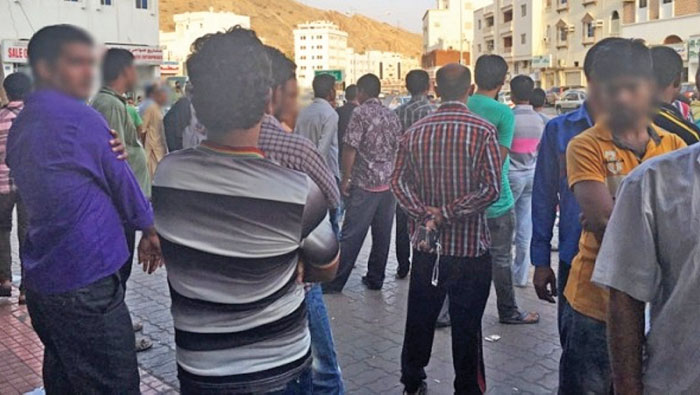
Muscat: If you’re hiring expats on the black market, send them back to their sponsors and replace them with Omanis – or get legal. That’s the view of experts in both private and public organisations in Oman, in the wake of a Ministry of Manpower (MoM) statement asking all residents to help fight the scourge of black market workers.
Read also: Is your car cleaner or maid here legally? If not you're fuelling the expat black market
‘Free visa’ is a term employed by agents and some unscrupulous company bosses to entice migrants to come to Oman for work. When they arrive, they soon realise there is no such thing. Having paid a lot of money to agents in home countries, they find themselves working on daily rates – with no legal protection – at the whim of corrupt ‘labour contractors and company bosses.
Ahmed Al Hooti of the Oman Chamber of Commerce and Industry (OCCI), says companies who are illegally bringing workers to Oman must be prepared to face the law – or hire nationals.
“If you don’t have enough employees, then hire Omanis,” said Al Hooti. “If you find that there are no Omanis available for a job, you need to conduct proper research of the market to find out who is available, and plan your projects that way.
“If they are going to use this mechanism in this way, then they have to take the responsibility of what they are doing, because the rules of this country are clear: if you are bringing someone here for work, it is your responsibility to take care of him, pay his salary, and not allow him to work somewhere else, except if there is a pact between you and another company that allows them to work for some time, but this is to help in the case of sub-contractors.”
Yunis Al Manthari, a member of the Majlis Al Shura, also warned companies against hiring workers on so-called ‘free visas’. “Illegal employment is detrimental to society for its business, because these are also unethical business activities,” he explained.
“Workers are deported to their country, so the one who is affected here is the worker. “It is easy for the worker and the employer to circumvent the laws.
“An independent fund will soon be established and will be one of the results of the Tanfeedh programmes, which will be separate from the Ministry of Manpower. We hope that many of these problems will be resolved.”
The ministry has warned companies not to hire black market workers, and promised to hunt down those who flout the law.
“Most cases of absconding employees stemmed from proxy companies that hired workers illegally, or institutions that are apparently/superficially owned by a citizen, yet in reality owned by an expatriate,” the ministry said. “The Ministry of Manpower would like to take this opportunity to better inform expats on the issue of illegal labour,” the ministry added. “Approximately 20,000 illegal workers are arrested each year for labour violations. This process consumes government resources, which could be put to use elsewhere, and undermines efforts to develop Oman’s economy.
“The MoM believes that a public more informed on the rules and penalties for the participation in, or enabling of, illegal labour practices, will reduce the problem,” added the statement. Under ministry regulations, both sponsors and employers caught in the act could face fines of up to OMR2,000 and could be barred from using ministry services for two years, with the employer also being ordered to cover the costs of his workers’ flights home.
Workers themselves will be charged up to OMR800, and will face deportation and a ban from working in Oman.
Qais Al Khonji is an Omani businessman, who was recently named one of the top 10 most talented entrepreneurs in the Gulf.
“I am sure the ministry is already conducting regular inspections, but more of the same is required,” he said.“Companies do this because they get illegal profit from it. For example, if I bring someone to Oman and tell him that he’s free to work for someone else, but tell him to give me OMR200 every month after he gets a job for OMR1,000, the money I get from him goes straight into my pocket.”
Zaid Al Shukaili, HR manager for Waljat College, said: “The free visa practice is illegal, so I advise anyone who is caught in this situation to approach the Ministry of Manpower and file a complaint against that company,” he said.
The companies who do this are not thinking about the rules, they are only thinking about profit.
Companies should provide all services and facilities to employees, and if they do this, it is likely that they will be blacklisted.”